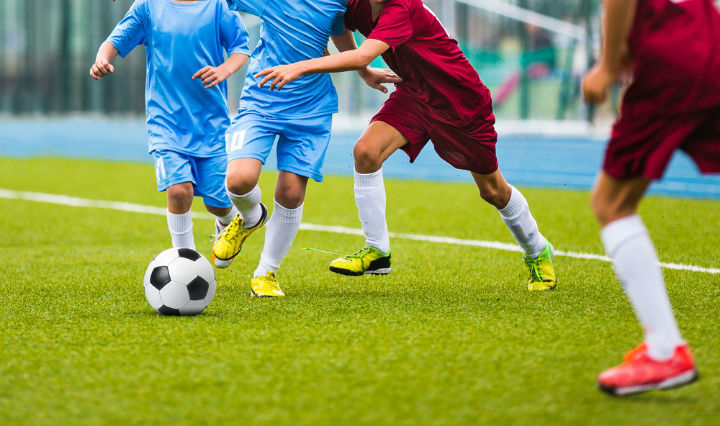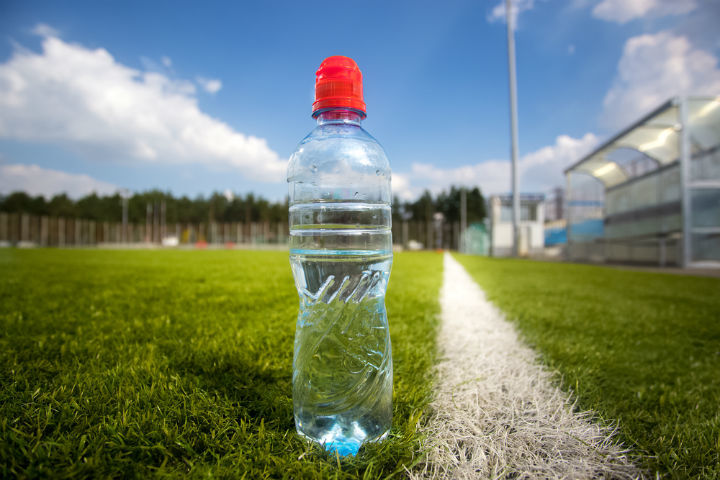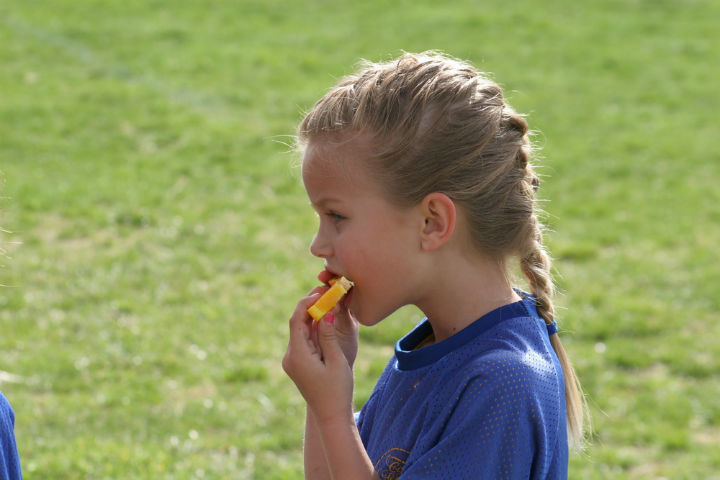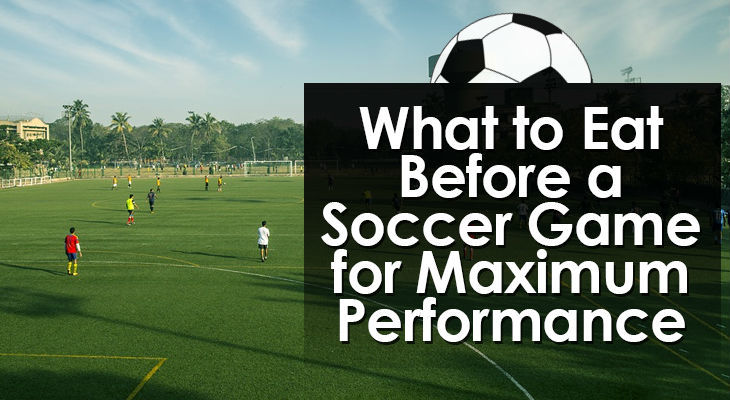What to Eat Before a Soccer Game for Maximum Performance
In the modern era of soccer, coaches and players will do everything possible to give themselves the opportunity to perform at their highest level.
This includes focusing on what to eat before a soccer game.
Long gone are the days when players will drink a soda and eat a pie before training or a match.
Now, every last aspect of a professional soccer player’s life is taken care of to give the team the best possible chance of success.
From sleeping in oxygen pods to travelling first class on flights and hiring psychologists, nothing is left to chance.
No expense is spared in the pursuit if excellence.
But while buying a specialised oxygen pod or travelling by plane to improve performance is beyond the reach of most teams, focusing on diet can easily boost performance.
If you’re looking to increase your energy while playing soccer, here’s a detailed explanation of what to eat before a soccer game.
But first…
Why Your Diet is Important
If you are expending a lot of energy playing soccer, the foods you use to fuel your body become super important to how you perform.
The old adage ‘you are what you eat’ rings true whether players like it or not.
Putting just a little bit of effort into your diet before trainings and matches will go a long way to improving you as a player.
If you have already made the commitment to show up to the trainings and matches, week after week, season after season, your commitment and desire might as well be mirrored in the foods you are eating.
Here are a few specific reasons why diet is important:
Energy - You need food that will fuel your body throughout the duration of the match or training.
Hydration - The liquids you take on before the match or at half-time helps to replace the water you lose from sweating.
Prevent Cramping - It’s important you’re able to perform well for the entire match. By taking on potassium earlier in the day for instance, we can avoid muscle cramps.
Feeling Energised - Eating too much, eating at the wrong time, or eating the wrong foods can make you feel lethargic.
As you can see, our diet impacts how our body functions in a number of different ways and it’s remarkable how much more alert and ready you will feel if you master your pre-game meals.
How to Keep Your Energy Levels High

Food is the fuel of the body.
What we eat is what gives us the energy we need to go about our daily lives whether it is learning in school, going to work, or playing soccer.
Obviously some foods are better for you than others which is why it’s important to understand how different foods fuel you when planning your pre-match meals.
There are 3 things you need to focus on:
1. What you eat.
2. When you eat.
3. How much you eat.
Soccer is an intense sport to play as you are constantly on the move around the pitch, sprinting forwards to help out the attack, or jogging back into position.
The most effective way to provide your body with energy to fuel all this movement and excel is by eating the right carbohydrates.
Carbohydrates are the main food source that the body burns to get energy and consequently stocking up on them before matches is crucial.
But this doesn’t mean go and binge eat carbohydrates…
Eating the correct amount and at the right time is crucial.
Let’s dig deeper…
Understanding the Body's Main Fuel Source (Carbohydrates)
Carbohydrates come in different shapes and forms with some such as sugar giving you an immediate energy boost and others like grains releasing energy over a longer period of time.
There are two types you need to know:
1. Simple carbohydrates
2. Complex carbohydrates
By understanding how each type works, you can begin to get an idea of when you should eat them.
Simple Carbohydrates
Simple carbohydrates come in the form of cakes, sweets, and soft drinks.
These are generally best consumed in moderation in the hour running up to the match or at half-time.
As the energy is quickly released, eating or drinking these without doing sport leads to the glycogen being turned into fat for later usage.
At half-time, for example, some players may want to eat something with a high sugar content as it will give them an energy boost.
Players still have to be careful though as too much will increase your blood sugar levels which will leave you feeling lethargic!
It is a fine balancing act initially, but becomes second nature in no time at all.
Complex Carbohydrates
Complex carbohydrates such as rice, cereals, pasta, potatoes, and bread are best to eat a number of hours before the match due to the fact that they release energy slower and over a longer time period.
While carbohydrates are the body’s main source of energy, it is important to eat a balanced diet to ensure the body has everything it needs to function and help you perform to the best of your abilities.
There are a number of other areas which we need to focus on first before looking at what times players should be looking to eat before matches if they want to have their energy levels at the optimum level.
So, what are some other parts of our diet that we need to think about?
What to Drink Before a Soccer Game

Just as crucial as carbohydrates, the body needs liquids to keep it hydrated, focused, and functioning well.
This is true during all day-to-day life, but even more so when we are playing sports.
This is because we lose a lot of liquid in the form of sweat.
Drink too much, however, and you will find yourself uncomfortable and find it hard to compete.
As always, it's important to find the right balance.
Throughout the day before a soccer match you should be drinking a lot of water. If you feel the need to drink, it means that your body has already become dehydrated.
As around 60% of your body is made up of water, it's obvious that you need to be constantly drinking water to keep everything working perfectly.
When we sweat while playing a soccer match for instance, we lose some of that water as well as the electrolytes that accompany it.
Electrolytes are crucial to how you perform on the pitch and there are a number of ways that you can replenish and replace them.
Hydrating well is crucial to your performance and goes a long way to ensuring that you can compete for the full ninety minutes.
Hydration Before the Game and at Half-Time
In the run up to a game, you should be drinking as much as possible to keep your body hydrated.
In the hour before the match, however, you should stop drinking too much as otherwise you will feel heavier and feel less agile.
At half-time you will have used up quite a bit of your water sources due to all the energy and effort you have given during the first half.
Consequently, you need to replace that liquid.
Again, however, you don’t want to drink too much and at this crucial point in the match, less is more.
You can see the truth to this by watching star soccer players on TV. You will only ever see them taking small sips, never huge gulps.
Sports Drinks and Other Liquids
While sports drinks are not necessary before a match as your balanced diet should be providing you with everything your body needs, at half-time they do come in use.
This is because the salts and sugars contained within the sports drink will help you to quickly replenish the electrolytes that you have lost.
The majority of the time it is best to stick to water which will give you most of what you need to perform to the best of your abilities.
Other liquids actually risk dehydrating you...
Drinks such as coffee, soft drinks, and fruit juice can actually have a negative rather than a positive impact on your body.
This is because these types of liquids act as a diuretic which stimulates urine production which will cause you to lose more water.
Not good.
To keep up your stamina and endurance, there are a couple of other things you need to think about to be at your optimum level...
When to Eat Before a Soccer Game

Just as it's important to know what to eat before a soccer game, it's also important to know when you should be eating and drinking.
If you eat too close to the start of the match, you will feel lethargic and won’t benefit from the nutrients contained within the food.
If you eat too early before the match, the carbohydrates will already be stored and converted into fat.
Getting it right will make you feel energetic, light on your feet, and ready to go for game-time!
Let's talk about what you should be eating and drinking on the day of a soccer game...
In the Morning
Upon waking up on the morning of a game, you should drink a lot of water as you will have become dehydrated during your night's sleep.
Top up your water levels immediately.
What you eat at this time will depend on what time of the day your game is being played, but it's best to stick to complex carbohydrates and protein.
Further Reading: Here are 13 snacks to choose from.
3 - 4 Hours Before the Game
There are many different food variations that you can eat to prepare, but essentially you want to have carbohydrates, protein, and an assortment of vitamins and minerals.
Alternatively, some people prefer to prepare elaborate smoothies containing a mixture of all the necessary nutrients that they will need.
With this meal, you should avoid having coffee and stick to drinking water for the best possible results.
In regards to the carbohydrates, you want to eat complex carbs as they will release energy slowly and this should coincide with you being out on the field.
Before the Game
Just before you start warming up, it's a good idea to eat a banana which will help prevent you from cramping up towards the end of the match and also provide you with carbohydrates.
As always, it is good to accompany this with water, but don't drink too much as this can make you feel bloated and heavy.
During Half-Time
At half-time, drink a sports drink as it will help you to stock up on the salts and sugar which you have depleted during the first half of the game.
The liquid will also prevent you from being dehydrated and will make sure you have enough electrolytes to perform to your maximum.
Once again, I recommend eating a banana for the potassium and carbohydrates.
After the Game
With the match completed and your energy levels depleted, it is time for a post-match meal to replenish the proteins, carbohydrates, minerals and vitamins which you used up.
Carbohydrate heavy meals with lots of protein are appropriate at this time, as is drinking a lot of water.
Now we know the timings behind when you should be eating and drinking before a match, let’s have a look at some examples of the types of food you want to include in your pre-match meals.
Example Meals:
Now that we have seen the reasoning behind the importance of certain food types and when and why we should be eating them, here are some food suggestions and recommendations...
Food to eat in the morning:
- A bowl of oat cereal with raisins and fruits of the forest
- Scrambled eggs with an assortment of vegetables
- Toast with peanut butter on top
- Low-fat yogurt
- A bowl of fruit
- Smoothies
- Lots of water!
In the right portions, a combination of these food sources will definitely have you ready to go come match time.
Food to eat 3 - 4 hours before the game:
- Rice
- Pasta
- Vegetables
- Fish
- Potatoes
- Beans
- Chicken
- Eggs
- Fresh fruit
- Water
Food to eat 1 hour before the game:
- Granola or muesli bars
- Sports drinks
- Bagels
- Crackers
- Bananas
- Nuts
- Dried fruits
Balance and timing are two of the key elements when it comes to selecting the perfect pre-match meal.
Eat the wrong quantities of certain foods, too much overall, or at the wrong times and you’ll be left feeling lethargic and heavy.
Get it right and you’ll feel amazing out on the pitch.
Conclusion
For players looking to improve their conditioning and performance on the pitch, eating healthy food and making smart choices can go a long way to taking your game to the next level.
Understanding what to eat before a soccer game will have a massive impact on the way you feel.
By simply modifying a few of your pre-game meals, players can ensure they feel energised and alert before each match.
If you start consistently eating the healthy, nutritious food, it will quickly become second nature to you and you'll soon see the benefits out on the pitch.
Further Reading: Soccer Player Diets: 3 Pro Players Reveal What They Eat

